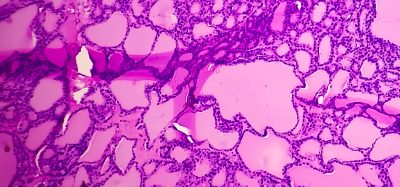Protective antibodies identified for rare polio-like disease in children
Posted: 6 July 2020 | Hannah Balfour (Drug Target Review) | No comments yet
Researchers isolated monoclonal antibodies from children who has survived infection by EV-D68, the virus linked to acute flaccid myelitis (AFM). These antibodies protected mice against infection.


Scientists have isolated human monoclonal antibodies that could prevent a rare polio-like illness which affects children.
Acute flaccid myelitis (AFM) causes sudden weakness in the arms and legs following a fever or respiratory illness and has recently been linked to a group of respiratory viruses called enterovirus D68 (EV-D68). Tracking of the disease by the US Centers for Disease Control and Prevention (CDC) began in 2014, since then there have been over 600 cases. AFM, which has been fatal in some instances, currently has no specific treatment.
In order to develop potential treatments for AFM, researchers at the Vanderbilt University Vaccine Center, US, isolated antibody-producing blood cells from the blood of children who had previously been infected by EV-D68. These blood cells were then fused to fast-growing myeloma cells, allowing researchers to generate a panel of monoclonal antibodies that potently neutralised EV-D68 in laboratory studies.
Biomarkers aren’t just supporting drug discovery – they’re driving it
FREE market report
From smarter trials to faster insights, this report unpacks the science, strategy and real-world impact behind the next generation of precision therapies.
What you’ll unlock:
- How biomarkers are guiding dose selection and early efficacy decisions in complex trials
- Why multi-omics, liquid biopsy and digital tools are redefining the discovery process
- What makes lab data regulatory-ready and why alignment matters from day one
Explore how biomarkers are shaping early drug development
Access the full report – it’s free!
Collaborators at Perdue University, also US, then determined the structure of the antibodies, shedding light o how they interact with EV-D68. One of the antibodies protected mice from respiratory and neurologic disease when given either before or after infection by the enterovirus.
Dr James Crowe, director of the Vanderbilt Vaccine Center and Ann Scott Carell Chair and professor of Pediatrics and Pathology, Microbiology and Immunology in the Vanderbilt University School of Medicine, concluded: “We were excited to isolate potent human antibodies that inhibit this devastating polio-like virus, and these studies will form the basis for taking them forward to clinical trials.”
The paper was published in Science Immunology.
Related topics
Antibodies, Biologics, Disease Research, Drug Leads, Monoclonal Antibody, Proteomics, Therapeutics
Related conditions
Acute flaccid myelitis (AFM), Polio
Related organisations
Perdue University, US Centers for Disease Control and Prevention (CDC), Vanderbilt University Vaccine Center
Related people
Dr James Crowe








